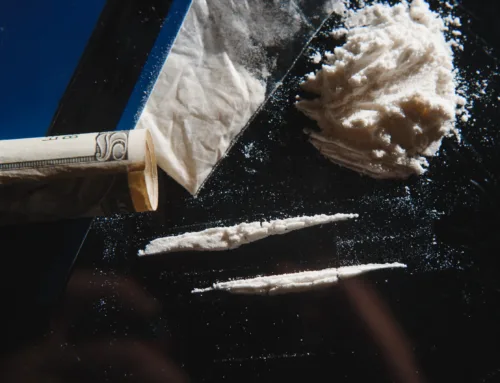What Does a Crack Pipe Look Like?
Discovering drug paraphernalia in your home can be shocking and deeply unsettling. Understanding what a crack pipe looks like and knowing how to respond if you find one are crucial steps in addressing potential substance abuse. Recognizing the signs of crack addiction and taking appropriate action can help support a loved one in need.
How a Crack Pipe Looks
A crack pipe is a specific type of drug paraphernalia used to smoke crack cocaine. It typically has a very distinct appearance, which can help identify it.
- Glass Pipe: Most crack pipes are made of glass. They often resemble small glass tubes, sometimes about the size of a straw. These tubes are usually clear but can also be colored or frosted.
- Bulbous End: Some crack pipes have a bulbous end or a small bowl where the crack cocaine is placed and heated. This end might show signs of black residue from burnt drug material.
- Straight Tube: Other variations include straight glass tubes with a chore boy (a small piece of metal scrubber), or steel wool inserted to hold the crack rock. These often look like small, thin test tubes.
- Burn Marks: The glass may have burn marks or be blackened from repeated use. The mouthpiece end might also show signs of heat exposure.
Signs of Crack Addiction
Recognizing the signs of crack addiction can provide further context if you find a crack pipe in your loved one’s possession. These signs can include:
- Behavioral Changes: Individuals addicted to crack cocaine often exhibit significant changes in behavior. They might become unusually secretive, paranoid or aggressive.
- Financial Issues: Sudden financial problems or unexplained spending can be a red flag. Crack cocaine is expensive, and addiction can lead to economic instability.
- Physical Symptoms: Weight loss, dilated pupils, burns on lips or fingers and poor hygiene are common physical indicators of crack addiction.
- Neglect of Responsibilities: A person addicted to crack may start neglecting their responsibilities at work, school or home. Their focus shifts towards obtaining and using the drug.
- Social Withdrawal: They may withdraw from social activities and relationships, preferring to spend time alone or with other users.
What to Do If You Find a Crack Pipe
Finding a crack pipe can be distressing, but it is crucial to approach the situation thoughtfully and constructively. Here are the steps to take:
- Stay Calm: It’s natural to feel a range of emotions, including fear, anger or disappointment. However, staying calm will help you address the situation more effectively.
- Gather Information: Understanding more about crack addiction and the specific challenges it presents can prepare you for the conversation ahead. Educate yourself about the symptoms, risks and treatment options.
- Choose the Right Time and Place: Initiate a conversation with your loved one in a private, calm setting. Ensure that you both have time to talk without interruptions.
- Express Concern, Not Judgment: Approach the conversation with empathy and concern rather than judgment or anger. Use “I” statements to express how their behavior affects you and why you’re concerned.
- Offer Support: Let your loved one know you are there to support them. Offer to help them find professional treatment and support groups. Encourage them to see a healthcare provider who specializes in addiction.
- Set Boundaries: While offering support, it is also important to set clear boundaries to protect your well-being. This might include not enabling their addiction by giving money or covering for their behavior.
- Seek Professional Help: Encourage your loved one to seek professional help. This could include therapy, rehabilitation programs and support groups like Narcotics Anonymous.
- Take Care of Yourself: Supporting someone with an addiction can be emotionally taxing. Ensure that you also seek support, whether through counseling or support groups for families of addicts.
Knowing what a crack pipe looks like and how to respond if you find one are crucial steps in addressing potential crack addiction in a loved one. Recognizing the signs of crack addiction and approaching the situation with empathy, support and clear boundaries can make a significant difference in helping them seek the help they need. Addiction is a challenging and complex issue, but with the right approach, it is possible to support your loved one toward recovery and healthier living.
If you or a loved one are struggling with crack addiction, Freedom Detox in Gastonia, NC offers detoxification/withdrawal management for individuals with substance use disorders in a safe, comfortable setting. Call (800) 475-2312 to get help today.





